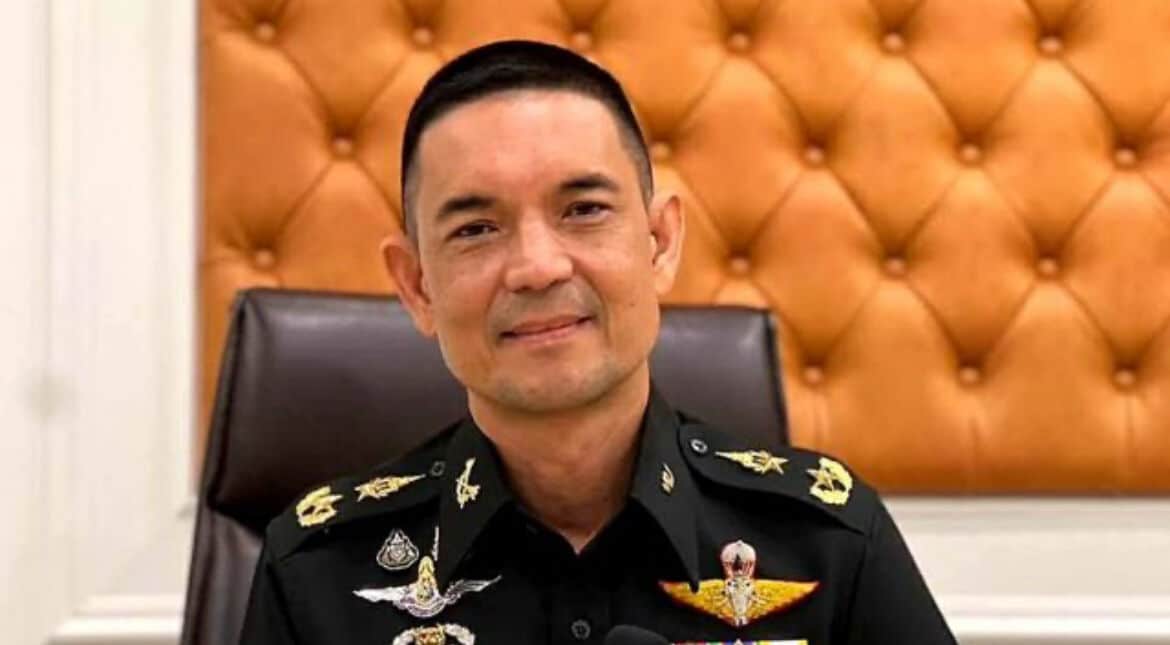He said, they said: RTA hits back over academic’s lèse majesté row

The Royal Thai Army (RTA) has fired back after a political bust-up over its decision to pursue lèse majesté charges against an academic, insisting it’s got every right to defend the monarchy, no matter who’s in the dock.
RTA spokesperson Major General Winthai Suvari waded into the Paul Chambers controversy yesterday, April 28, confirming that Internal Security Operations Command (ISOC) Region 3 acted fully within its rights to file charges under Thailand’s strict Section 112 law.
The row exploded after a heated meeting of the House of Representatives Military Affairs Committee on April 24, where some MPs questioned whether ISOC had overstepped its authority by lodging a criminal complaint against Chambers, a Naresuan University employee, at Muang Phitsanulok Police Station back in February.
Maj. Gen. Winthai brushed off the criticism.
“Filing a complaint when a violation of national law is suspected is normal and can be done by anyone. It’s not the same as exercising legal powers to arrest someone.”
He explained that Section 112, covering offences against the monarchy, is a crime against the state, meaning any citizen or agency can alert police if they spot suspicious activity. It’s then up to investigators and the courts to decide guilt.
Maj. Gen. Winthai revealed the complaint stemmed from a public tip-off, with ISOC Region 3 later investigating and finding that Chambers had allegedly used “personal feelings” to spread damaging interpretations to outsiders, impacting the monarchy’s reputation.

As for concerns that Chambers is a foreign national, Winthai was blunt.
“Thai law applies to everyone within Thailand’s borders, no exceptions.”
The RTA spokesperson also hit back at what he called “insulting and sarcastic” remarks made during the fiery parliamentary debate, where MPs threw around jibes like “stupid but hardworking,” “power-hungry,” and “lacking English skills.”
He said these insults had no bearing on the legal case but did reflect poorly on the meeting’s tone and standards.
Crucially, Maj. Gen. Winthai dismissed claims that the case hinged on a misunderstanding over the English pronoun “he” being used in the disputed material, reported ThaiRath.
“That is not the main issue in the lawsuit. Some politicians were trying to muddy the waters to defend Chambers.”
He warned that parliamentary mechanisms should not be abused to shield individuals facing criminal prosecution, and called on society to scrutinise whether political interference was crossing ethical lines.
On a separate note, Winthai clarified that Section 7 of the Internal Security Act, often cited during crises like the southern border unrest, had no role in this case.
“Paul Chambers is facing a normal criminal charge. This is not about approving special security measures.”
With the legal wheels now turning, Chambers will have the chance to defend himself through Thailand’s judicial system but the RTA has made it crystal clear it’s not backing down.
Latest Thailand News
Follow The Thaiger on Google News:


























